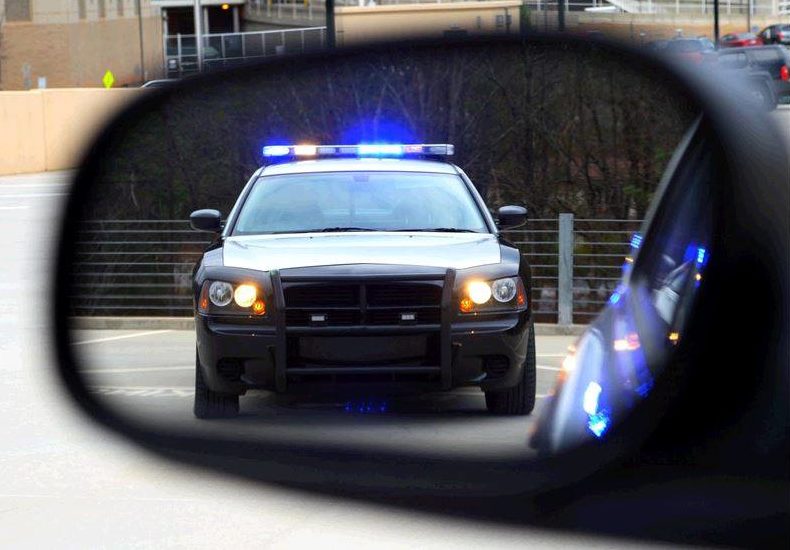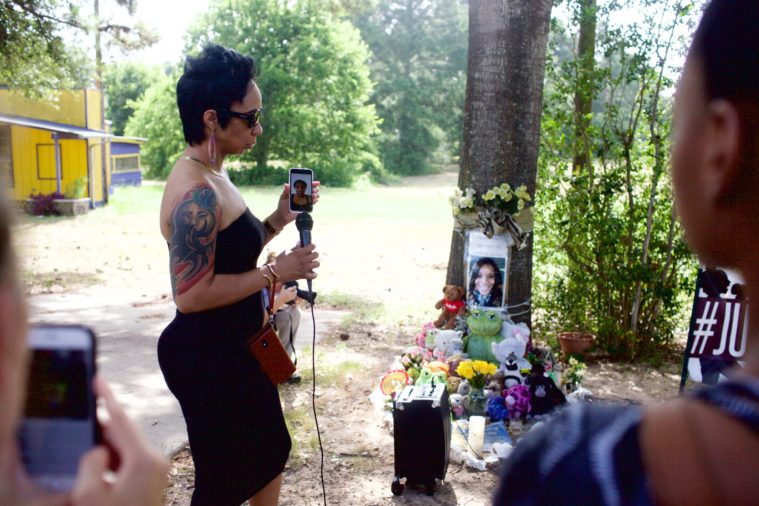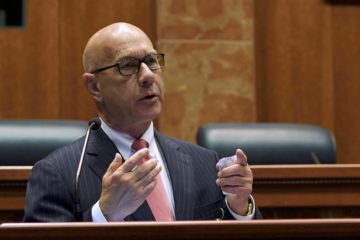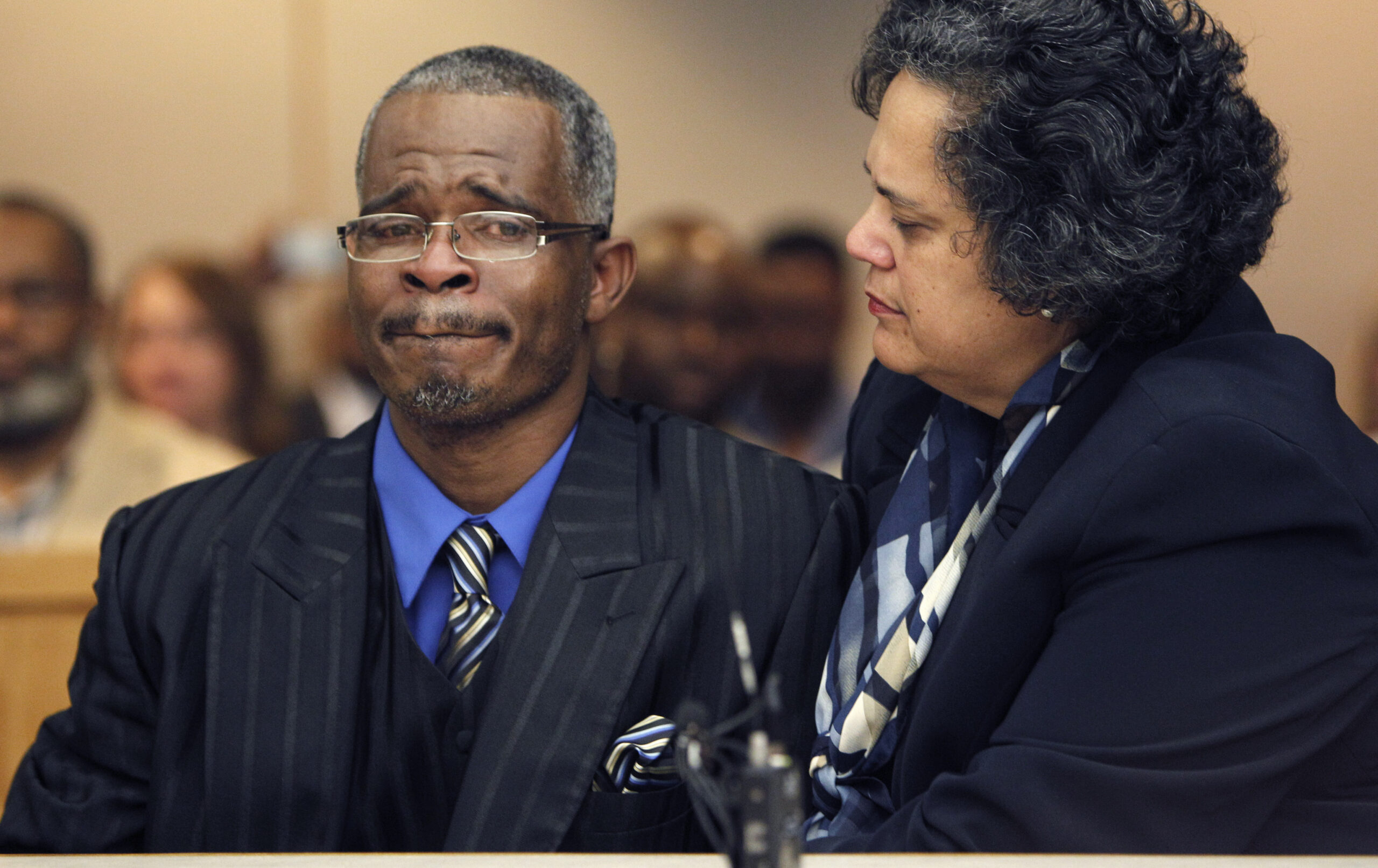
Bill to Improve Interactions Between Texans and Police Advances to Senate
The measure, carried by Democratic senators, advanced to the Senate with unanimous support, but Houston Black Lives Matter activists still oppose it.

Fear follows when red and blue lights flash in the rearview. Some people worry they’ll get a ticket. Some, cops included, are scared they’ll be shot.
According to state Senator Royce West, D-Dallas, the Senate Criminal Justice Committee took a step toward abating these fears Tuesday when it advanced Senate Bill 30. The proposal, authored by West and Senator John Whitmire, D-Houston, would help teach high school students, drivers and police officers how to interact with each other during traffic stops.
“This bill is an attempt to reduce the number of fatalities or high-tension encounters between law enforcement and citizens,” West said as he laid out his bill at the committee hearing.
Whitmire has cited the death of Sandra Bland, who died in the Waller County Jail in 2015 after police arrested her during a traffic stop, as inspiration for the measure.

If signed into law, the bill will require public high schools, driver education courses and police academies to include in their curriculum “information relating to law enforcement procedures for traffic stops.” West calls this the “three-legged stool” approach to providing both police and the public with a uniform set of expectations for interaction.
SB 30 provides a rough outline for instruction; it must include information about the role of law enforcement, citizens’ rights and proper behavior during a traffic stop. The bill tasks the State Board of Education and the Texas Commission on Law Enforcement with drafting the curriculum. West’s bill wouldn’t force schools to teach an entire class on traffic stops. Rather, it would develop curriculum “modules” that could be incorporated into existing classes for high schoolers.
“We want to make certain that there is some flexibility for schools,” West said.
The bill passed out of the committee unanimously with a 6–0 vote; three committee members — two Republicans and a Democrat — were absent.
Yannis Banks, legislative liaison for the Texas NAACP, was among several people who spoke in support of the measure Tuesday.
“We want folks to be on a level ground of understanding on both sides,” he told the committee. “I don’t see any negatives from this bill.”

Nobody testified against the bill, which has the backing of education and law enforcement agencies, but that doesn’t mean it’s free of opposition. Since Whitmire first announced the proposal last October, the Houston chapter of Black Lives Matter has opposed the bill.
Ashton Woods, a spokesperson for the chapter, told the Observer last year that he opposed the measure because it forces the victims of police violence to be the ones making change. That’s still true, he said Wednesday. “I’m not slipping on that.”
Woods said he agrees with the portion of the bill that would require additional training for police, but he doesn’t think the state should require schools to teach kids how to behave during traffic stops.
“It is the responsibility of the police and the agencies that regulate the police to make sure they are trained to de-escalate and improve community relations,” he told the Observer. “It is not our responsibility. They messed up; we didn’t.”
Woods was at the Capitol Tuesday, but he was there to testify in support of House Bill 574, a measure by state Representative Senfronia Thompson, D-Houston, that would prohibit police officers from arresting people for fine-only offenses.
The way Woods sees it, Thompson’s bill would be more likely to prevent future tragedies like Bland’s death than West and Whitmire’s measure.
Representatives from the Combined Law Enforcement Associations of Texas and the Texas American Federation of Teachers didn’t testify Tuesday, but they registered in support of SB 30. So did several other law enforcement officials, such as Gary Tittle, assistant chief of the Dallas Police Department.
Before calling for the vote, Whitmire said that in the years he has chaired the committee, the body has frequently required additional training for law enforcement.
“As law enforcement increases its training we need the public to essentially increase their training, too,” he said.


